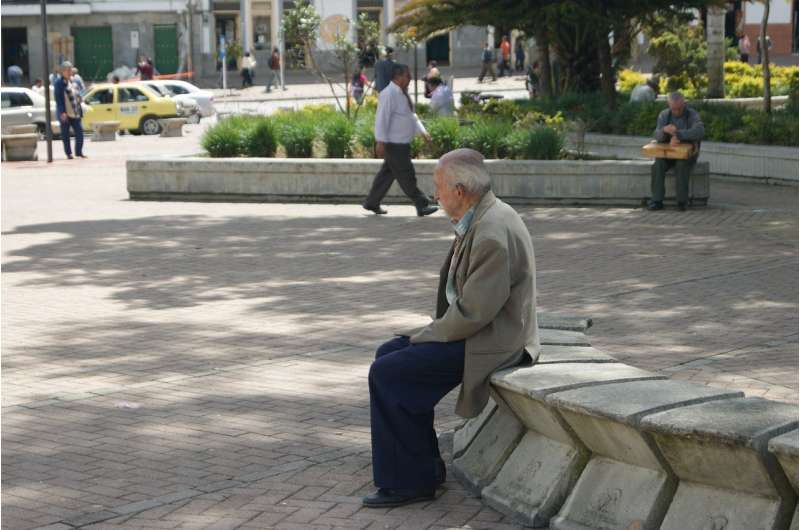Regeneration may cause isolation for older people, study finds

A study by an academic from The University of Manchester has found that urban regeneration in poor neighbourhoods can actually backfire, and lead to older people feeling isolated.
As cities regenerate, new homes, residents and facilities are built which can change an area dramatically. A new movement to create 'age friendly cities' is aiming to ensure that regeneration happens in a way which allows older people to actively participate in their communities, stay connected to the people that matter most to them, and remain living in their homes for as long as possible—known as ageing in place.
Social anthropologist Dr. Camilla Lewis spent a year living in East Manchester, one of the most deprived areas in the UK, in order to understand how local regeneration is affecting the day-to-day lives of older residents. The study focused on women aged over 50 who had lived in the area for their entire lives.
She interviewed and observed residents in places including a community centre, a market cafe and their homes. She found that despite being close to the city centre and benefiting from millions of pounds of investment in their area, people tended to feel separated from the wealth and new identity of the rest of the city. The demolition and rebuilding of new houses had also resulted in a deep sense of uncertainty and isolation.
"Despite the ambitious plans of local government, the rebuilding of houses actually caused a huge upheaval to social ties, with families and neighbours being rehoused away from one another," said Dr. Lewis.
"Many people felt that, compared to the past, there was no longer a close-knit community, no one looked out for anyone anymore, or felt pride in their neighbourhood. They lamented the loss of industry in the area, describing in nostalgic terms how East Manchester used to support proud communities of workers who had a strong sense of local identity."
Her study showed that in order to make sense of the changes taking place around them, older people share memories of the past with strong networks of support. Social settings are vital to these networks, however it was felt that lots of the places that had previously served as community hubs—such as markets, churches and pubs—had disappeared, meaning that people no longer had the opportunity to get to know their neighbours.
The research highlights the need to understand the needs and expectations of older people when developing age friendly cities, rather than assuming that one approach will satisfy all.
"My findings show that regeneration processes are only advantageous to certain groups, and for older people are often unsettling due to disruptions to their former ways of life and local identities. It's important to understand the history and identity of neighbourhoods within cities – which differ hugely, from one community to another – as local identity is so important for older people's sense of belonging," says Dr. Camilla Lewis.
Provided by University of Manchester



















